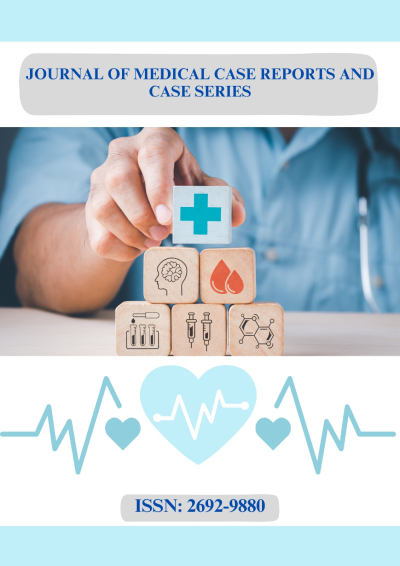Samer Talib, MD*, Srijana Poudel, MD, Bilal Ashkar, MD
Raritan Bay Medical Center, Perth Amboy, New Jersey.
*Corresponding Author: Samer Talib, MD, Raritan Bay Medical Center, Perth Amboy, New Jersey.
Abstract
The widespread use of smartphone technology and the advanced technology in those smartphones allow high-quality video and audio recordings with a touch of a screen. Patients are reportedly recording their doctors, and it is legal because they can provide one-party consent to record the conversation. Unfortunately, it is illegal for healthcare providers to audio or videotapes their patients without permission. Internet searches reveal variable articles, with some embracing the benefits of patient-physician conversation recordings [1]. Newspapers repeatedly reported patients secretly recorded some inappropriate comments from their doctors [2]. Physicians must be aware that they may interact with a patient using a cellphone to audiotape and accept this responsibility [3].
Keywords: smartphone, audio recording, patient, physician, privacy, HIPPA
Introduction
The vast majority of Americans, 97 %, own a cellphone, and 85 % own a smartphone have audio and video recording software [4]. In 39 of the 50 states, one-party consent rule to record a conversation. NJ is one of those states, and it is legal for a patient to record a conversation with his doctor without his consent. HIPPA does not permit providers to record patients without their permission. The recording may better patient adherence and clarify their health. Patients can also share it with family members. Audio and video recordings can raise privacy issues, including other patients and staff members' identifiers [5]. These recordings can be altered and distributed widely on social media and significantly impact physicians' reputations. It can be utilized in legal proceedings or regulatory complaints. It may damage the physician-patient relationship and abolish the patient-physician trust foundation.
I had a meeting with a patient family. After introducing myself to the family members, they placed their cellphones on the table to record our conversation. I had this feeling I was being judged and could not stop thinking about the motives behind such a recording. This recording may be doctored and published online; it could harm my reputation if this happened. All the worse things came into my mind; at the moment, I considered discussing with the family to stop recording but doing this may hurt our professional relationship. The situation was dire, and I did not want to worsen it. The family may think I am insensitive to their feelings while still processing this emotional trauma; instead, I am concerned about the recording. This incident was the first for me to be in this situation I endorsed tremendous pressure dealing with this hardship. A comprehensive search through the available literature found some of the common reasons for patients to record their healthcare providers, including:
- Poor health literacy with the best approach is to spend more time with patients and understand their socio-economical and educational background and the degree of their knowledge of their illness [5].
- The providers may use complex medical terms to explain [1].
- The patient may be hard of hearing, and he is embarrassed to talk to the physician about that [1,5].
- The patient wants to involve his family in his medical decision, and they are unavailable at the time of the visit, and the patient is recording so he can share the recording with them.
- The patient is considering legal action against the provider [5] could be due to feeling weak and vulnerable due to illness or the physician is not working in their best interest.
Summary
The widespread availability of smartphones [4] and patients reportedly use them to record their health providers'. The laws in 39 states do not require physician consent before recording. There is little in the medical literature that provides a road map on dealing with this situation. The best approach is for physicians to implement strong communication skills [5] to start a healthy conversation in a non- threatening way with the patient and understand his reasoning behind the record [6]. The healthcare provider should offer alternatives to the recording and, If not possible, then ensure this recording will not violate the privacy of other patients or healthcare staff. It won't impact the patient-physician relationship with the consideration of documenting that the patient recorded the encounter or keeping a copy of the exact recording in the medical record [7]; also, always encourage open dialogue with patients, so they feel comfortable to discuss their concerns with the healthcare team.
Conclusion
Its likely patients are increasingly recording their doctors in the ED, medical floor, and outpatient clinic. Professionalism with clear and excellent communication will help the patient and physician in this situation [5].
References
- Hsieh P. Why you should record your doctor visits. Forbes; 2015. Available at:
- Wang Y (2016) Patient secretly recorded doctors as they operated on her. Should she be so distressed by what she heard? The Washington Post.
- Rodriguez M, Morrow J, Seifi A (205) Ethical implications of patients and families secretly recording conversations with physicians. JAMA. 313(16): 1615-6.
- https://www.pewresearch.org/internet/fact-sheet/mobile/
- Canadian Radio-television and Telecommunications Commission [Internet]. Ottawa (ON): CRTC; 2015. Communications Monitoring Report 2015, Telecommunications sector overview.
- Canadian Medical Protective Association. Ottawa (ON): CMPA; 2016 September. Medical-legal handbook for physicians. Version 8.2.
- Canadian Medical Protective Association [Internet]. Ottawa (ON): CMPA. CMPA Good Practices Guide.



